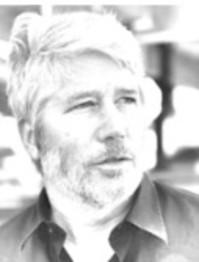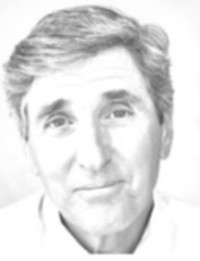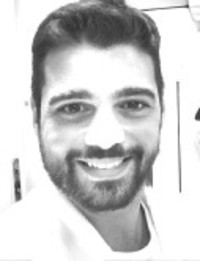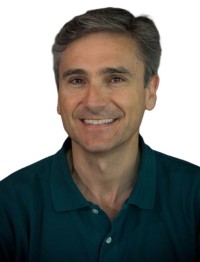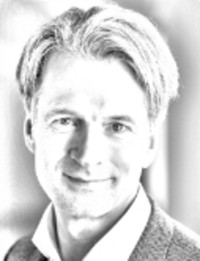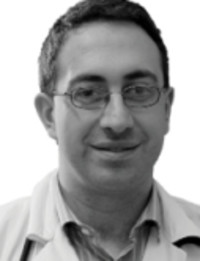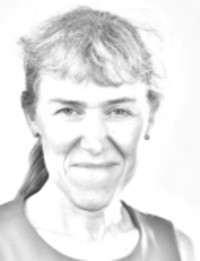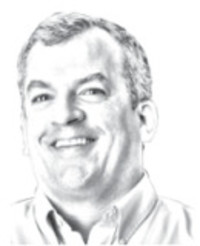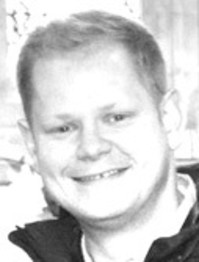Issues
Volume 18 - Issue 1, 2018
Thu, 25 Jan 2018

In this Issue
- Table of contents
- Editorial Board
- Download pdf (print optimised)
- Download pdf (screen optimised)
Editorial
2084
READ MOREIn his groundbreaking novel ‘1984’, British writer George Orwell portrayed a futuristic world that could only be imagined at the time of its 1948 publication. With incisive foresight, even without its dystopian character, 1984 showed a society watched by an all-seeing eye that is evident in today’s data-driven digital world. Technology is not good, or bad by nature; it is the way we use it. With tec...
Spotlight
Top Healthcare Trends 2018
READ MOREWhat do healthcare leaders see ahead? HealthManagement.org spoke to healthcare leaders on the future of the sector. The consensus is Artificial Intelligence (AI), leadership training, population health, cross-collaboration and development of value-based healthcare will lead progress in healthcare. Prof. Lluís Donoso Bach Editor-in-Chief Imaging, HealthManagement.org "There are a number of tren...
Committing to the future of medicine
READ MOREThe future is not so far off as a new book on future healthcare shows A new book released by Jacobs Institute has its finger on the pulse of the lightning-speed changes happening in healthcare and how stakeholders will need to adapt to stay ahead. Peering into the future of healthcare is less about predictions and more about implementing systemic change to...
Management Matters
Visionary leadership
READ MOREThe way forward for US healthcare Experts draw their conclusions on the American health system and what needs to be done to eradicate the many problems that continue to manifest. In a recently published book, health leaders Dr. Denis Cortese and Antony Bell offer a radical overview of the dissatisfaction of the American healthcare quagmire and enlist ways whi...
Women in radiology
READ MOREThe American experience and perspective Professor Stephen Baker gives an overview of women’s place in radiology and how times are changing. When I write this, and no doubt months later if and when you read it, the matter of women’s place in society will remain centre stage. In the west, at least, there has been an insistent awareness of their collective lack of opportunity, lack of respect and...
Point-of-View
Reinventing breast tomosynthesis
READ MOREExpanding Leadership based on clinical evidence. In early September, Hologic launched the new 3Dimensions™ mammography system, a breast tomosynthesis system with the fastest and highest resolution, in EMEA. I recently had the pleasure of showcasing this cutting-edge device at the European Society of Breast Imaging (EUSOBI) Annual Scientific Meeting, where a number of radiologists from a variety o...
A transformation in mammography
READ MOREMore comfort and increased confidence from 3Dimensions™ Following robust research from Hologic regarding its newly launched 3Dimensions™ mammography system, I was thrilled that our radiology department at Fatebenefratelli and Ophthalmic Hospital in Milan had the opportunity to implement the new system, and what a positive response we got from both our technologists and our patients. The new...
Harnessing the power of connected care and telehealth
READ MOREMajor congress focuses on telehealth developments. Connected care and telehealth are playing a key role in the rapidly changing healthcare sector, but should be handled with care when implementing. The healthcare sector is one that is constantly and rapidly changing. Chronic disorders and complex disabilities are becoming more prevalent in certain medical fields. Maintaining a healthy lifes...
Cover Story
Prepare your hospital for the future
READ MOREHealthcare experts around the globe weigh in on the future of the sector. Globally-crowdsourced input has shown that technology will trigger huge transformation in healthcare in the next decade with early adopters reaping long-term rewards. Healthcare is changing rapidly in the face of technological advancements—with groundbreaking innovations such as 3D printing and artificial int...
Future medicine, today's healthcare
READ MOREIs the “Smart Hospital” a chance for change? Prof. Heinemann explains how futuristic and smart technologies that are used in preventive and diagnostic healthcare, are embedded in a new digital professionalism and quality. Artificial intelligence (AI) in diagnostic radiology, robots in nursing and operating theatres, augmented and virtual reality in surgery and medical training, 3D-printed skin, block...
Let's change before we have to
READ MOREThe race is on to implement technology effectively for improved liaising and better health outcomes. Health technology can change healthcare but only with implementation of basics such as collaboration, communication and easy exchange, combined with transformation of some traditional workflows. AirBNB, TripAdvisor, Uber, OpenTable, WhatsApp and many others have appeared in a disrupting ma...
Smart contracts in healthcare
READ MORELooking at the future of Smart Contracts in healthcare. Could Smart Contract-enabled blockchains help protect patient data while also promoting watertight agreements in healthcare? How Blockchain and Smart Contracts will impact the funding of research and innovation in healthcare Definitions Blockchain: A digital ledger in which transactions made in bitcoin or another cryptocu...
Leading the way in patient healthcare portals
READ MOREThere is no “one-size-fits-all” approach to patient portals. With the European Commission's eHealth Action Plan 2012-2020 for wide digital health implementation in the works, sundhed.dk explains how to make a success of a health data portal. Can you summarise the current work and objectives of sundhed.dk? sundhed.dk works according to the overall national strategy within eHealth as the state, re...
The lab of the future
READ MORETechnology is changing the face of medical laboratory operation. As healthcare technology advances, medical laboratories need to keep ahead of the curve on trends for optimal operation and interoperability. HealthManagement.org looks at key areas where changes are happening at full tilt. Point-of-care testing for lab scientists There have been great strides in point-of-care testing (PoCT)...
The future of augmented reality in healthcare
READ MORESmart technologies shaping the future. An overview and look to the future of how augmented reality (AR) is being widely adopted in the healthcare industry, creating business opportunities for companies with AR expertise. Augmented reality is the use of displays, cameras, and sensors to overlay digital information onto the real world. In contrast to Virtual reality (VR),which creates an entirely new...
The challenges and opportunities of tomorrow’s radiologist
READ MORERadiology facing its future head on. An overview of how smart tools such as artificial intelligence should perhaps not be feared, but rather accepted and embraced. The future of radiology is indeed a hot topic in healthcare today. The role that smart technologies such as deep learning (DL) and artificial intelligence (AI) play within radiology continues to spark both fear and interest, yet the reali...
Utility of artificial intelligence in cardiology
READ MOREA step forward for daily practice. Artificial Intelligence (AI) tools are proving their utility in the evolving field of cardiology. However, it's necessary that cardiologists understand their full potential in order to use them efficiently in the near future. Decision making in medicine Nowadays, the decision-making process in medicine is a complex task that in an ideal world is based on the availability...
Winning Practices
Logistics robots to support care: a Finnish study
READ MOREHow to introduce robotics into a healthcare setting for a smooth transition. Study shows that Change Management can make or break success of robotics implementation in a hospital setting. Key areas in which innovative technology is contributing to healthcare include improving efficiency and productivity. Hospital hallways often become congested, which can hinder the transportation of supplies...
Award-winning new doctors’ assistants freeing time in acute NHS hospitals
READ MOREPilot reduces doctor overtime and improves efficiency. Developing staff as Doctors' Assistants from HealthCare Assistants in acute National Health Service (NHS) hospitals is safe, efficient, high value and improves patient care. There is a crisis in the UK NHS, with reductions in doctors’ working hours and a relentless increase in numbers and complexity of patients (HEE, 2017). Other repor...
3D printing at the Jacobs Institute: an update
READ MOREAt the forefront of neurovascular and cardiac surgical modelling. How one healthcare innovation centre is making great strides with neurovascular and cardiac 3D printing for better, more economical care. The autumn 2016 issue of HealthManagement.org showcased the ways that the Jacobs Institute (JI), a non-profit medical device innovation centre in Buffalo, NY, is using 3D printing to create...
Deep interoperability in healthcare
READ MOREThe view from KLAS on the state of data access for better care. According to a report by research body KLAS, “deep operability” has doubled but 86 percent of healthcare organisations have yet to report success. HealthManagement.org spoke with report co-author Colin Buckley on what this means for healthcare. Can you define ‘deep interoperability’? There ar...
Virtual reality clinic: a case study
READ MOREThe growing role of VR in healthcare. How has VR developed and what potential does it have for future healthcare? In the 1990s, there were no resources dedicated to virtual reality (VR) and behavioural healthcare - no journals, no clinics, no conferences, no training programmes and only few advanced technologies. Today, we find ourselves in the midst of a new exciting and challenging era of technology-...
Machine learning detecting early brain tumour presence
READ MOREMachine learning algorithms in brain tumour identification. How machine learning is being utilised to characterise aggressive gliomas in a scalable analysis system. By tapping the power of supercomputers, combined with machine learning algorithms, a team led by University of Texas at Austin researchers have developed a method to automatically identify brain tumours. This novel method, the product of n...
Our top 10 Twitter followers
READ MOREAround-up of our most collaborative, impressive followers. HealthManagement.org is proud to hold such a large number of followers on Twitter. From doctors, to medical engineers, to some of the world’s most innovative technological giants, we hope 2018 continues to provide us with even more collaborative partners and followers. Over the last few years, HealthManagement.org has developed into the lead...
Compass
Are rankings the best way to determine healthcare systems?
READ MOREUncovering the truth behind healthcare rankings. World healthcare rankings have been published since 2000 but have they made any difference? This article reviews the literature available and focuses on the media’s attention to the latest rankings issued in 2017. When it comes to healthcare, we just adore and perhaps relate easily to league tables stating who’s the best or worst at things. Our belie...
I-I-I Blog
Amit N. Thakker
READ MORETop Quote from Blog: Healthcare Revolution in Africa through Public-Private Partnerships. "A successful investment is not defined solely by financial input, but also by additional critical factors such as collaborations, robust frameworks and policies, scalable economies, targeted opportunities for development, and effective resources, that would bring it to fruition. Public, private and development part...
Maged N. Kamel Boulos
READ MORETop Quote from Blog: How can the Internet of Things and people help improve our health, wellbeing and quality of life? "While research was successful at documenting and highlighting the risks associated with IoT deployments in health/care, the industry has somewhat failed to follow and tackle those issues, focusing more on rapid profit generation and usability (user convenience). Device and service securi...
Lori Fontaine
READ MORETop Quote from Blog: Reinventing breast tomosynthesis. "As a woman who participates in breast cancer screening and is passionate about ensuring women have access to the best technology available, I know first-hand how important it is to develop equipment that factors in insights from both radiologists and patients to improve the experience. These insight-driven advancements in technology must be supp...
Angela Maas
READ MORETop Quote from Blog: Why I'm a Cardiofeminist. "In the Netherlands around 75% of medical students are women, but what we hear from the female students here and in other countries is that the atmosphere that cardiology departments have, the macho behaviour that is still hanging around, means that they don’t want to work there for the rest of their lives. Women still have to be fighters to get in and to s...





